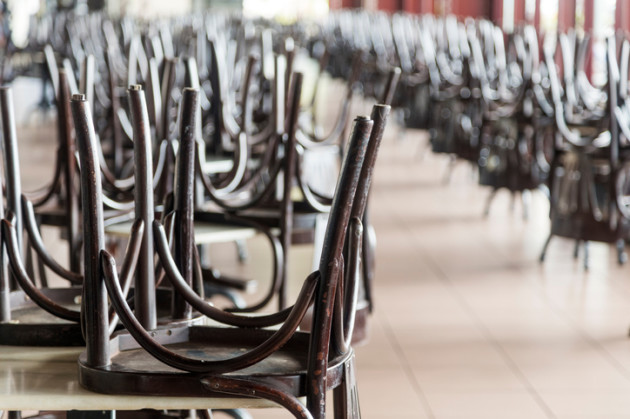
Licensed sector shrinks by 10,000 sites
The licensed sector has shrunk by nearly 10,000 sites from pre-Covid levels, the new Market Recovery Monitor from CGA and AlixPartners has revealed.
Hospitality has lost nearly 1,000 (980) sites alone between July and September as cost, staff and supply pressures mounted, it said.
The Market Recovery Monitor indicated that small businesses have borne the brunt of closures. Independently run pubs, restaurants, bars and other licensed premises accounted for nearly three quarters of all closures between July and September, reducing the indie sector in size by 1%.
In contrast, the managed sector proved robust over the summer, achieving growth in site numbers of 0.1%, it said.
The report said that the closure of the 980 sites, which is an average of 16 a day, showed that the hospitality industry remains under severe pressure from the effects of Covid-19, plus a range of operational challenges including labour shortages, disruption to supply and rising costs.
It also highlighted the plight of nightclubs during the pandemic. Despite being able to trade from July, Britain’s number of nightclubs dipped by nearly 100 to just over 1,000 by September – a drop of 9% in just two months.
The closures between July and September mean there are now 9,900 fewer licensed premises than there were before the pandemic hit in March 2020, and the Market Recovery Monitor warned that more business failures are possible before the end of 2021 if these significant trading challenges are not addressed.
“These numbers are a reminder – if it were needed – that the crisis in hospitality is far from over. Restrictions on socialising and trading may have eased, but their impacts continue to be felt by restaurants, pubs and bars whose reserves have been eaten up by months of closure,” said Karl Chessell, CGA’s business unit director for hospitality operators and food, EMEA.
“Factor in a crisis in recruitment, rising costs in many key areas and widespread supply issues, and it is clear that thousands of firms and jobs remain vulnerable. Targeted government support on these major challenges – starting with more VAT relief – is needed to help to prevent hospitality’s recovery from stalling.”
Graeme Smith, AlixPartners’ MD, said: “These figures are a stark reminder that the full lifting of restrictions in July did not signal an end to the challenges faced by hospitality businesses. The impact on nightclubs, which were unable to trade at all during the pandemic, has been particularly acute with almost one in 10 sites closing in the past two months.”
He added: “Demand remains strong but with staff shortages, utility cost inflation and supply-chain disruption, there are renewed efforts to secure continued government support to the industry to help it weather this storm as the reopening and rehabilitation process continues through what may be a challenging winter.”
The latest Business Confidence Survey from CGA and Fourth said that one in six (16%) of hospitality jobs currently lie vacant, triggering intense competition among firms to recruit and retain team members.
Keywords:
- CGA
- hospitality
- rising costs
- staff
- sector
- supply
- sites
- over
- VAT
- july
- SEPTEMBER
- EMEA
- labour shortages
- recovery
- licensed
- Market Recovery Monitor
- recovery monitor
- market recovery
- licensed sector
- 10 000 sites
- winter ”the latest
- challenging winter ”the
- continued government support




